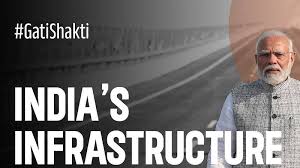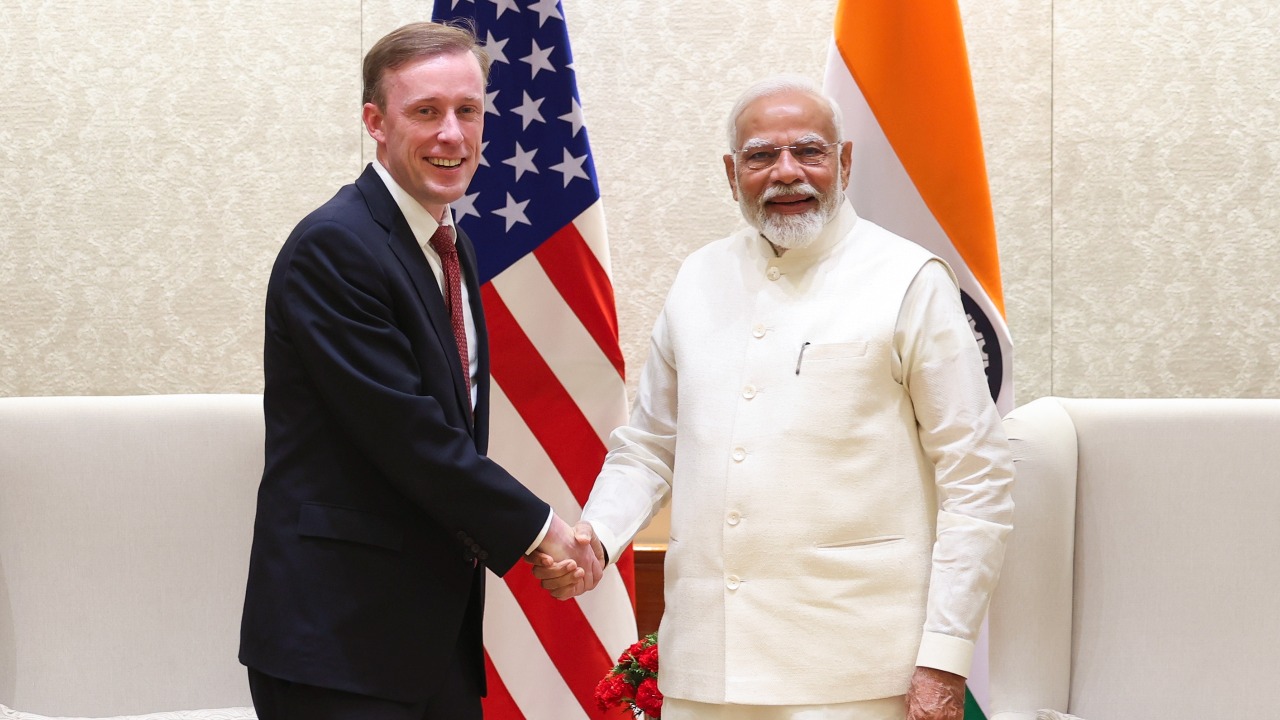PM Modi's Infrastructure Initiatives: Transforming India's Landscape

Under the dynamic leadership of Prime Minister Narendra Modi, India is undergoing a remarkable transformation in its infrastructure landscape, reflecting a vision of progress and development for the nation. In recent years, the government has embarked on a mission to modernize and expand the country's infrastructure, unveiling numerous ambitious projects worth over Rs 2 lakh crore across various states, including Andhra Pradesh and Delhi. These initiatives aim to address the critical need for enhanced connectivity, streamlined transportation networks, and sustainable development. One of the pivotal aspects of this transformation is the establishment of new railway zones, which are designed to improve efficiency, enhance regional connectivity, and boost the overall capacity of the railway network. These railway developments are complemented by the construction of expressways and metro expansions, which promise to revolutionize urban and intercity travel by significantly reducing travel times and providing efficient, safe, and environmentally friendly alternatives to traditional modes of transportation.
In addition to transportation, the government has prioritized green energy initiatives, with a strong commitment to achieving India’s ambitious target of generating 500 GW of renewable energy by 2030. This focus on sustainable energy reflects the broader global shift towards combating climate change and reducing carbon footprints while meeting the energy demands of a rapidly growing economy. The development of renewable energy projects, including solar parks, wind farms, and hydroelectric facilities, is not only a step towards environmental sustainability but also a means to create thousands of jobs, particularly in rural and semi-urban areas where such projects are often located. The convergence of job creation and sustainable energy development underscores the multifaceted benefits of these initiatives, which are designed to uplift communities while addressing global environmental concerns.
The economic and social impact of these infrastructure projects is profound, as they aim to improve the quality of life for millions of citizens. By ensuring efficient travel, reducing congestion, and enhancing access to essential services, these projects contribute to a more seamless and interconnected India. For instance, metro expansions in major cities are easing the burden on existing public transportation systems, reducing pollution levels, and making urban areas more livable. Similarly, expressways are fostering economic growth by connecting industrial hubs, agricultural markets, and remote regions, enabling smoother trade and commerce. The focus on infrastructure development is also evident in the government’s emphasis on sustainable urban growth, which involves creating smart cities equipped with modern amenities, robust public services, and eco-friendly infrastructure.
These efforts align with the broader vision of a "Developed India" (Viksit Bharat), a concept that encapsulates the aspiration of transforming India into a global economic powerhouse while ensuring inclusive growth and improved living standards for all. Enhanced connectivity, both physical and digital, is a cornerstone of this vision, as it facilitates economic prosperity by enabling the free flow of goods, services, and information. The government’s investments in digital infrastructure, such as broadband connectivity and smart governance systems, further complement the physical infrastructure projects, creating a comprehensive framework for development. This holistic approach ensures that the benefits of development reach every corner of the country, bridging regional disparities and fostering equitable growth.
Furthermore, the emphasis on infrastructure development is indicative of a long-term strategy to position India as a global leader in innovation, manufacturing, and sustainable development. By modernizing its transportation networks, investing in renewable energy, and creating world-class urban infrastructure, India is not only addressing its current challenges but also laying the foundation for a prosperous future. These initiatives are expected to attract domestic and foreign investments, stimulate economic activity, and enhance India’s competitiveness on the global stage. The ripple effects of these projects are already visible, with increased economic opportunities, higher employment rates, and a gradual shift towards a more sustainable and resilient economy.
Under the stewardship of Prime Minister Narendra Modi, India is witnessing an unprecedented wave of infrastructure development that is reshaping the nation's landscape and driving it towards a brighter, more prosperous future. The government’s focus on modernizing transportation, expanding renewable energy capacity, and promoting sustainable urban growth reflects a commitment to addressing the needs of a growing population while safeguarding the environment for future generations. These initiatives, rooted in the vision of a Developed India, are not just about building roads, railways, and energy facilities; they are about empowering people, enhancing the quality of life, and fostering a sense of national pride and unity. By prioritizing connectivity, sustainability, and inclusivity, the government is paving the way for an India that is not only developed but also resilient, equitable, and globally competitive.
Posted By: Shraddha
.gif)
.gif)



(1).png)

%20(600%20%C3%97%20386px)%20(600%20%C3%97%20329px)%20(500%20%C3%97%20281px)%20(450%20%C3%97%20281px)%20(450%20%C3%97%20253px)%20(386%20%C3%97%20238px).jpeg)
%20(600%20%C3%97%20386px)%20(600%20%C3%97%20329px)%20(500%20%C3%97%20281px)%20(450%20%C3%97%20281px)%20(450%20%C3%97%20253px)%20(450%20%C3%97%20250px).jpeg)
.jpg)
.jpeg)